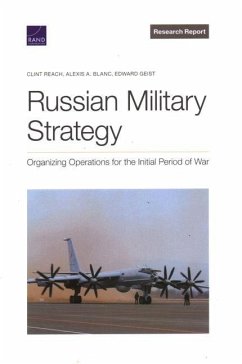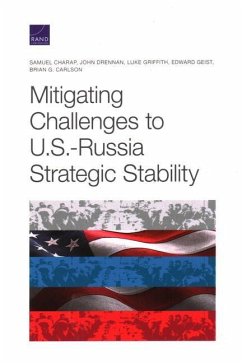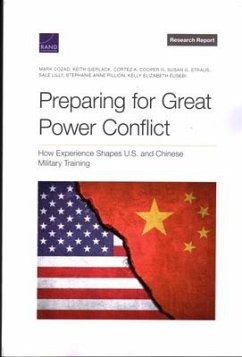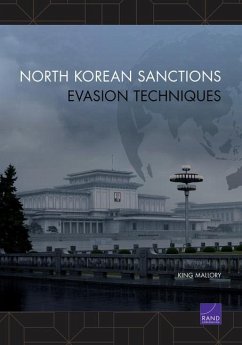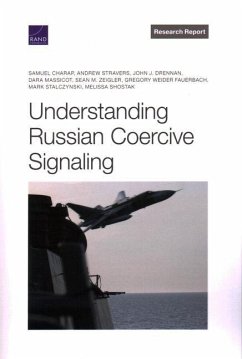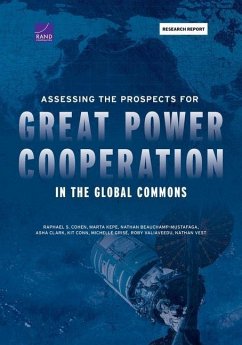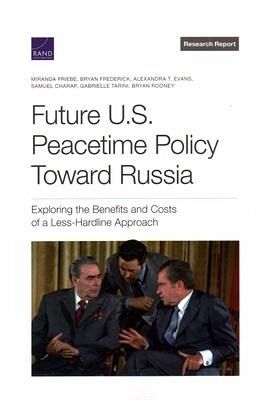
Future U.S. Peacetime Policy Toward Russia
Exploring the Benefits and Costs of a Less-Hardline Approach
Versandkostenfrei!
Versandfertig in über 4 Wochen
43,99 €
inkl. MwSt.

PAYBACK Punkte
22 °P sammeln!
Using four historical case studies, the authors found that limited less-hardline approaches can lead to durable but narrow gains. However, issues left unaddressed by these approaches may still undermine the relationship over the long term.







